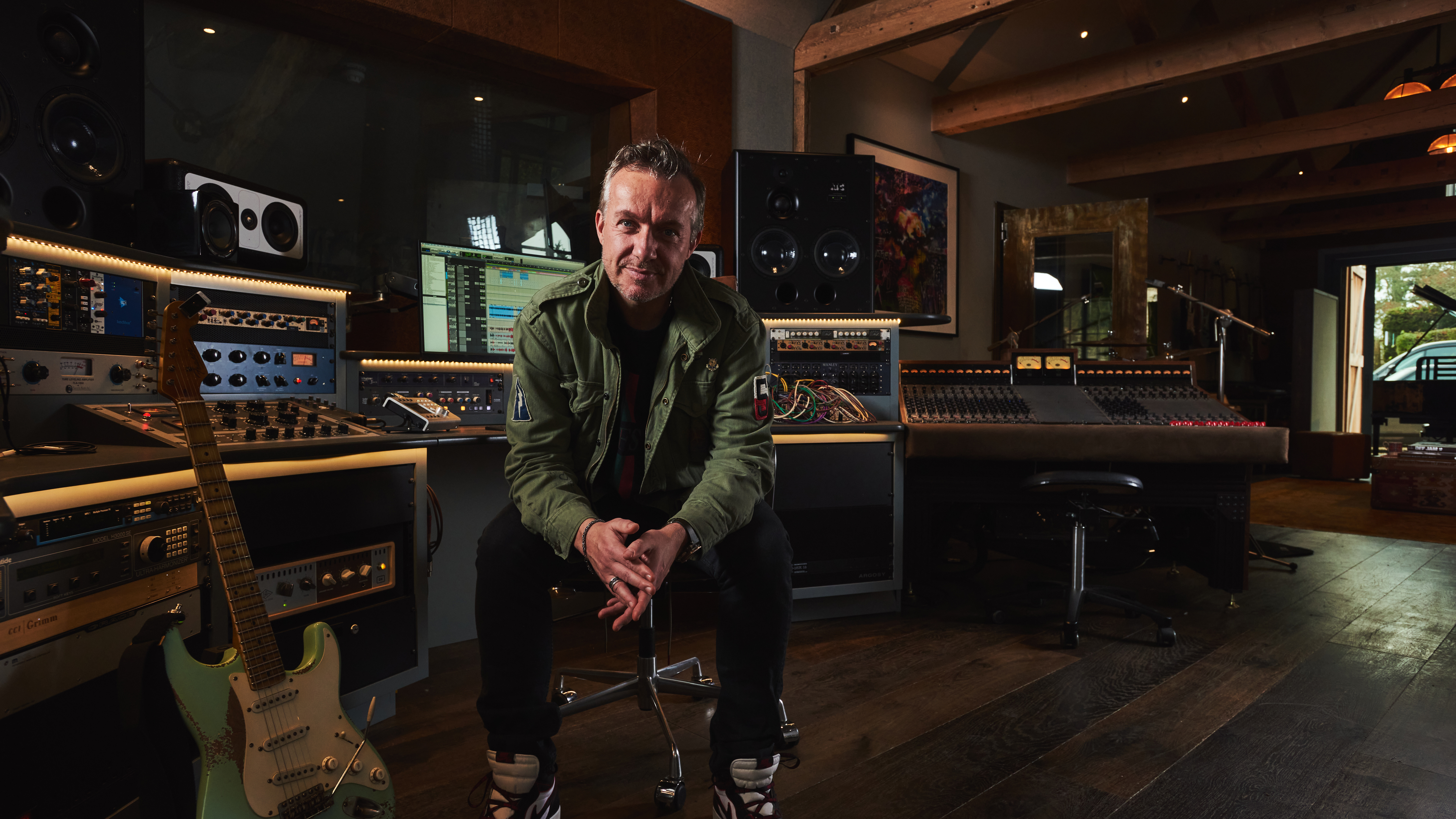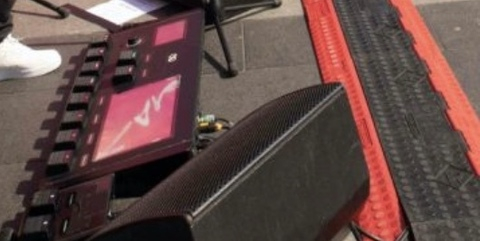5 underrated DAWs that aren't Logic, Ableton or Pro Tools, and why you should consider switching
Best of 2023: If you've been using the same DAW for years, now might be the time to consider these low-cost, feature-packed alternatives
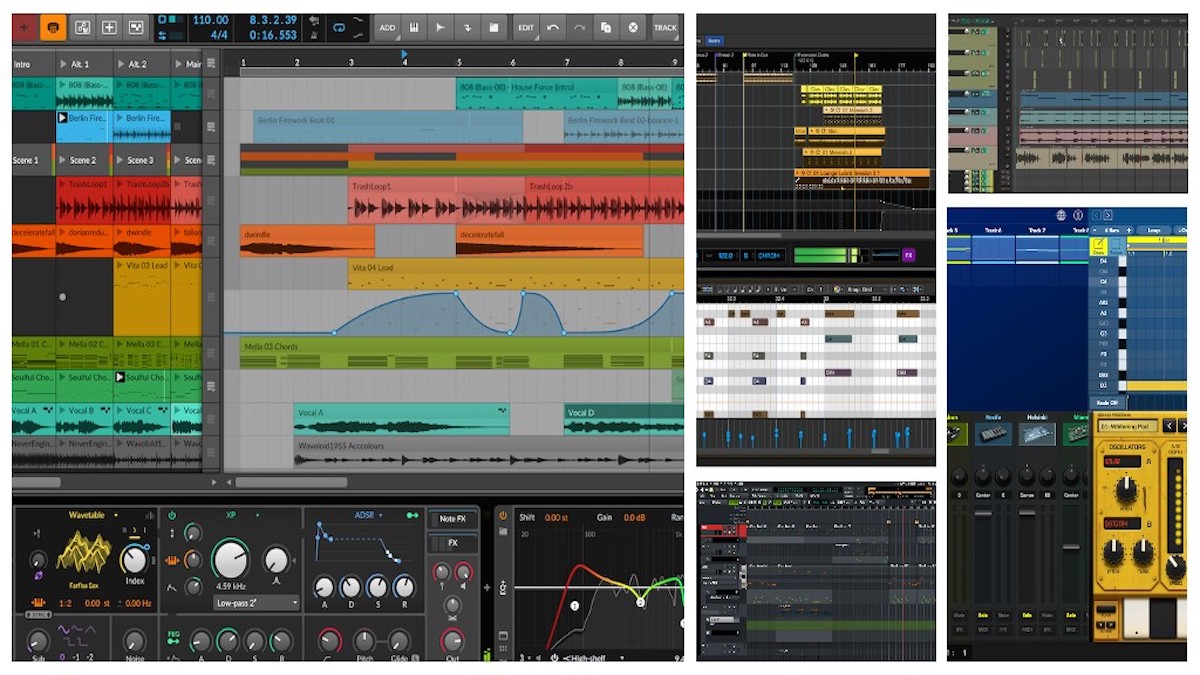
Join us for our traditional look back at the news and features that floated your boat this year.
Best of 2023: That DAW you've been using since you first started out in music production might well feel like a comfortable old pair of gloves, but there are plenty of newer software applications out there that could well blow it out of the water. Here we look at five such options that might make you rethink your entire way of making music.
If you're anything like we used to be, you'll hate change, not want to learn something new, and will never consider switching your DAW (Digital Audio Workstation) because, well why the heck should you? It does what you need it to, right? What it always has done.
Why should you change your DAW? It does what it always has done, and everything you need it to, right?
The problem is that right outside your studio window, there's been a quiet – actually, not so quiet – revolution in DAW development. It's not just the traditional big guns doing good things any more. Yes Apple, Avid, Steinberg, Image-Line, Ableton and the other big developers continue to make great software, but there are some new kids in DAW town, and they're taking over the saloon as we speak.
So here, without further ado, are five DAWs you might consider opening right now, and they're so good that you might consider closing your current DAW for good.
Ardour
Ardour (Mac, Windows and Linux) is an open source DAW that handles all the main functions you expect from a sequencer – recording, mixing, editing and export – and is aimed at sound designers, composers, film score creators and, ok, all music producers.
You can download the demo version (which, incidentally, didn't work on our Silicon Mac) or subscribe for as little as a dollar a month to get total access. Seems like a good deal.
If it's starting to sound like Ardour is throwing too much your way, too soon, we've not even started yet
You get unlimited audio and MIDI tracks, simultaneously recording of as many of the former as your hardware allows, and can also add as many effects per track as you like. If it's starting to sound like Ardour is throwing too much your way, too soon, we've not even started yet.
Get the MusicRadar Newsletter
Want all the hottest music and gear news, reviews, deals, features and more, direct to your inbox? Sign up here.
There's full automation, custom bus creation, video/soundtrack editing, tempo maps for more complex timings, lots of custom export options, and a similar flexibility when it comes to Ardour's 'anything to anywhere' routing, which is right up there with Bitwig's flexibility aspirations.
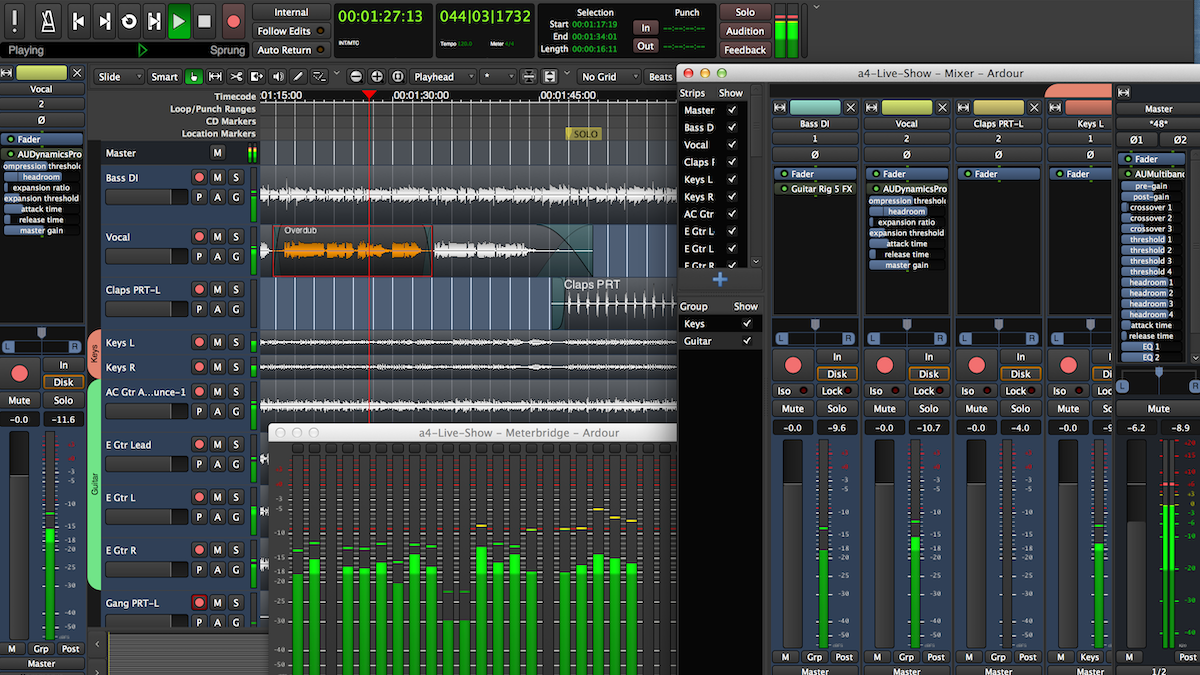
The latest version 7 has had lot of extras added, like Enter Queue for Live style clip and scene launching, which can also be triggered from the main timeline. There's also a new Clip sidebar (for organising audio, loops and other clips), added mixer scenes, a new plugin manager, MIDI stem exporting and a complete overhaul of Ardour's timing setup to iron out previous bugs.
Ardour looks welcoming, comes with a ton of features and is probably the DAW that, when you immerse yourself in it, will pay you back many times over.
Ardour is available as a demo, or pay $1, $4, $10, or $50 per month for a constantly updated version, or $45 for the current v 7.5 version to the next point update.
PROS
Welcoming interface
Lots of cutomisable options
Newer Live-style clip launching
Stacks of features
Easy automation
CONS
You'll need to spend some time with it
More information from Ardour.
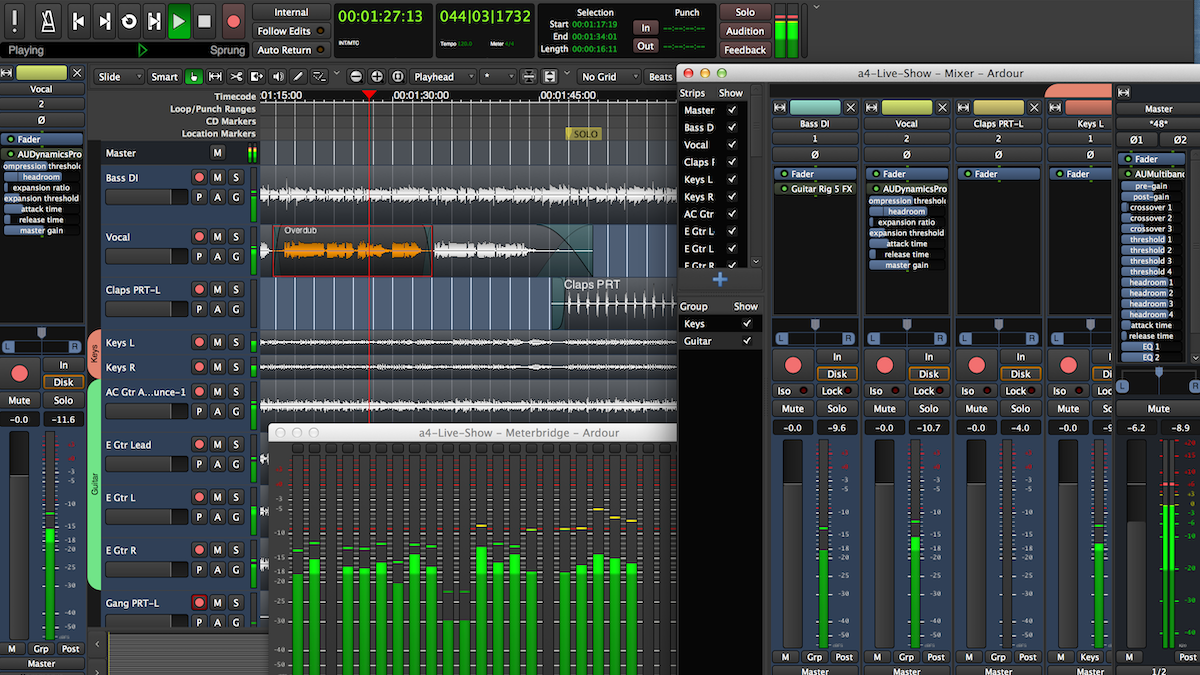
Cockos Reaper
Reaper is one of those DAWs that people rave about because it's cheap and does everything you need it to, but still manages avoid too much limelight, giving it a certain 'if you know, you know' appeal.
Other aspects point to it being developed without too much profit in mind. There aren't endless updates with countless features added every time, so there's little 'feature bloat', and it's also a slight and lithe DAW compared to some.
As with everything in Reaper, all you need is present and correct, and probably a lot more besides
There's also a handy 60-day evaluation period so you can really dig deep for free for a couple of months to get to know it. The upgrade scheme is not as good as FL Studio's 'free updates for life' offer – but then what is? But you do get free updates all through to the next point version (so join at the current 6.82, it will be free until v7.99.).
Reaper can be initially confusing – and rather blank, when you load it – but creating tracks (unlimited should you wish) is easy. Virtual instrument tracks need to be done manually and don't quite open in as slick a way as you might be used to, but as with everything in Reaper, all you need is present and correct, and probably a lot more besides.
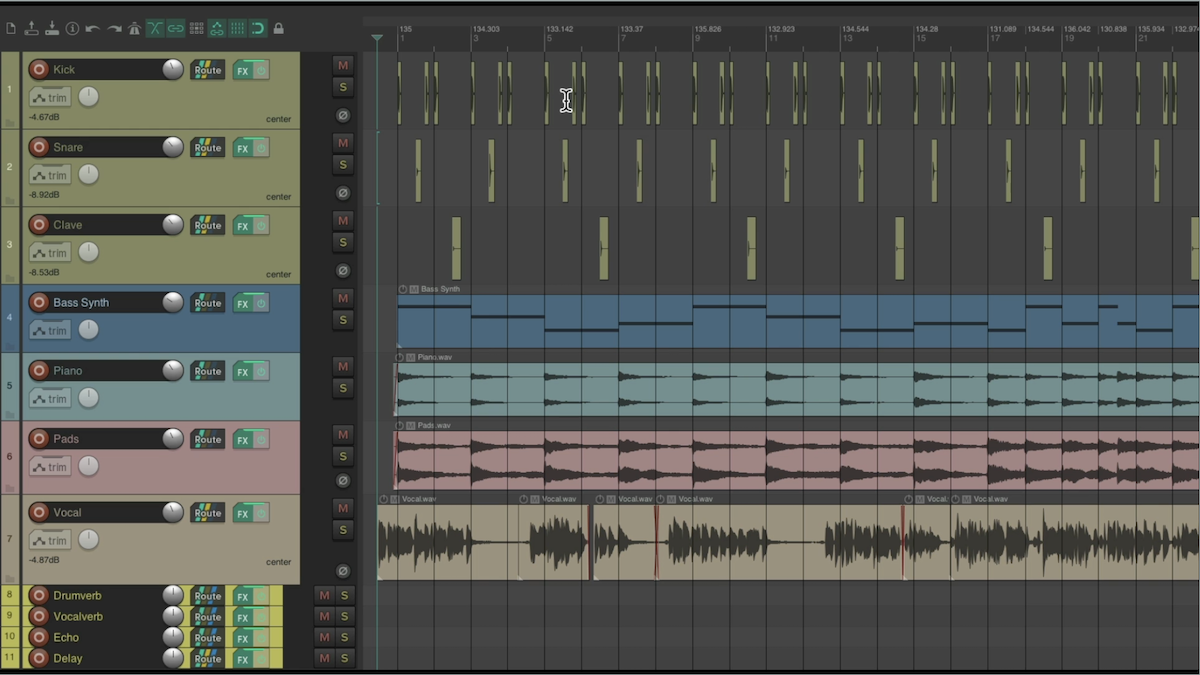
And that's probably the main takeaway from Reaper. It's all there, it's slick, it may not look fancy – although there are several customising options – but it gets the job done with relative ease once you get your head around it, and not for much outlay.
A small business license for Reaper is $60 and if you make more than $20k a year from your music you pay $225, which seems very fair. Reaper is available in both PC, Mac and Linux.
PROS
Simple interface
Great value for money
60-day trial period
Not too much processing power
Takes up minimal space
CONS
Not a lot of extras
Not intuitive… at first
More information from Reaper.
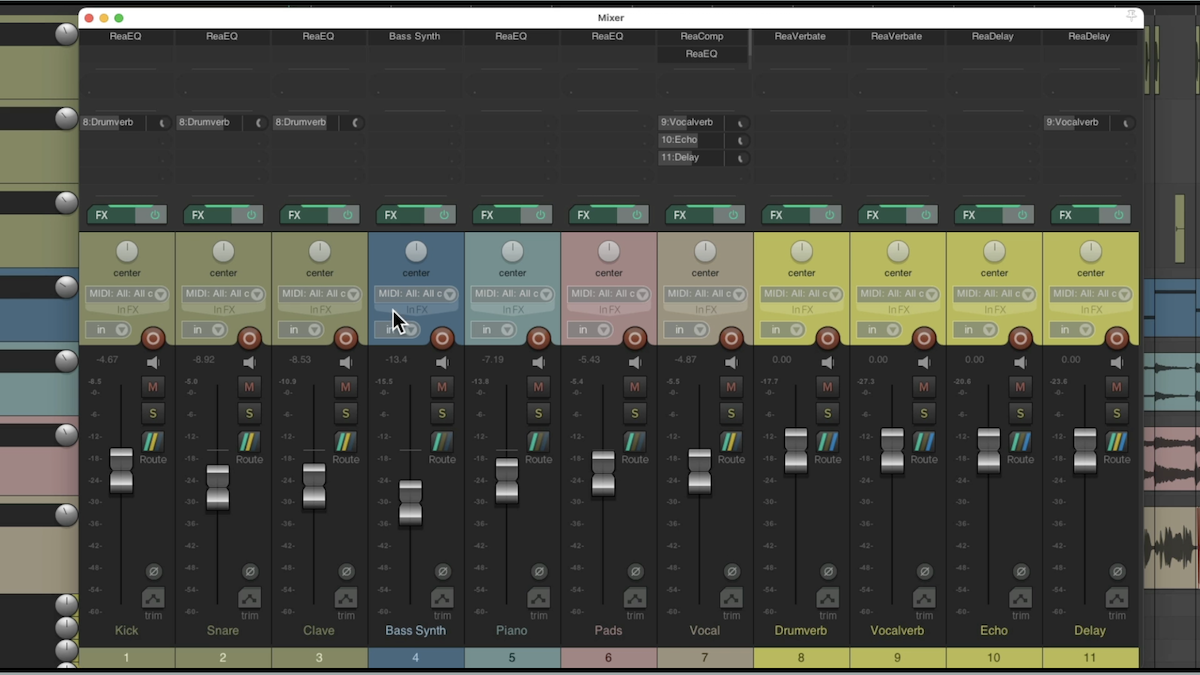
Bitwig Studio
We've long been fans of Bitwig Studio (Mac, PC) here at MusicRadar but the software has also been in the shadow of other DAWs, particularly the fellow Berlin-based Ableton Live, from which it took some cues on its first release.
Version 5 of the software is a world away from that though, and its most dramatic update in years. It looks to have finally given the DAW enough legs of its own, so much so that it is turning into more of a creative instrument in itself as well as a fully featured DAW.
It's Bitwig's in-depth modulation features that add so many more layers of creativity
All of the 'basic' DAW stuff is there – and a lot more on top. You can use it as a fully functional DAW for song creation, taking scratchpad ideas right through to professional masters. Do this in the traditional Arrange Timeline of via clip launching.
Then there's The Grid, a virtual modular environment for the creation of instruments and much more – an area which Studio has made its own and one rarely found elsewhere in DAW land.
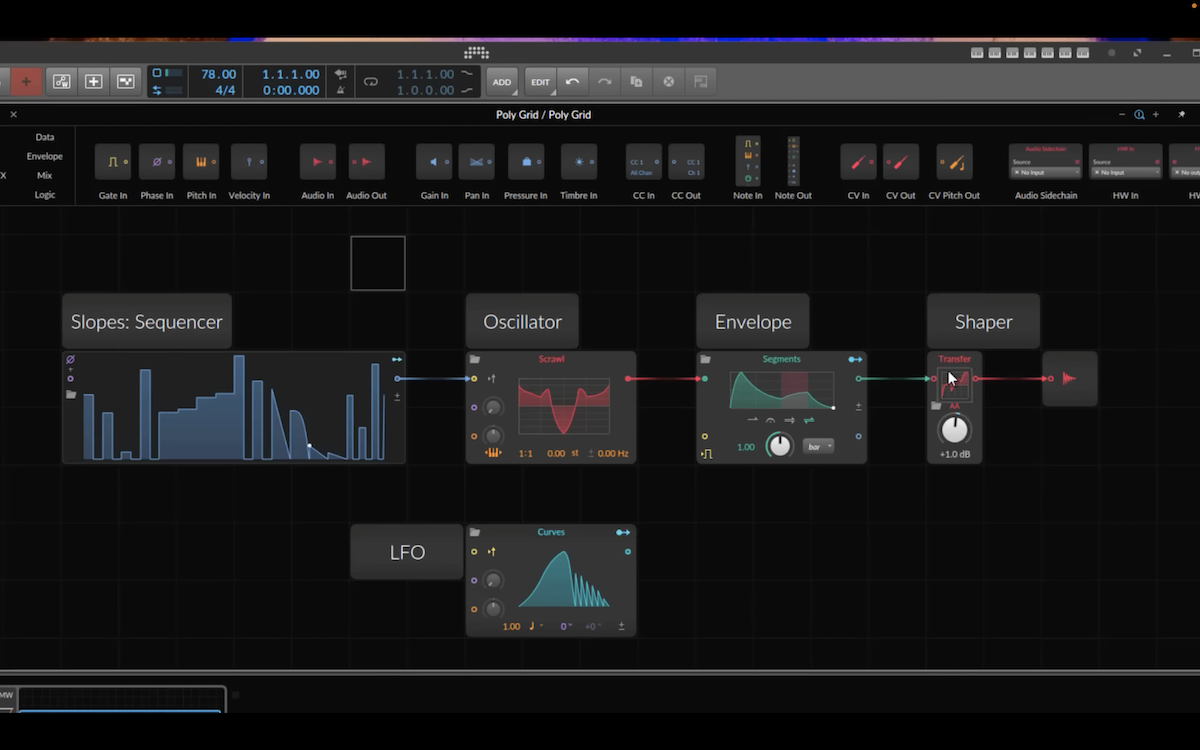
But it's Bitwig's in-depth modulation features – especially from v5 onwards – that add so many more layers of creativity. Its MSEG (Multi-Stage Envelope Generator) system allows modulation of just about anything, by anything; it's not just confined to plugins but the entire arrangement.
Bitwig is no longer the beginner DAW it once was, but a supercharged creative monster. Some concepts might take a mind shift but are worth exploring for going on tangents you will not have considered.
You can get Bitwig Studio on three levels: Essentials (€99), Producer (€199) or the full Studio (€399).
PROS
Looks great
Endless creativity
Decent price
Lots of great instruments and effects
CONS
The modulation side required a slightly different way of thinking
More from Bitwig.
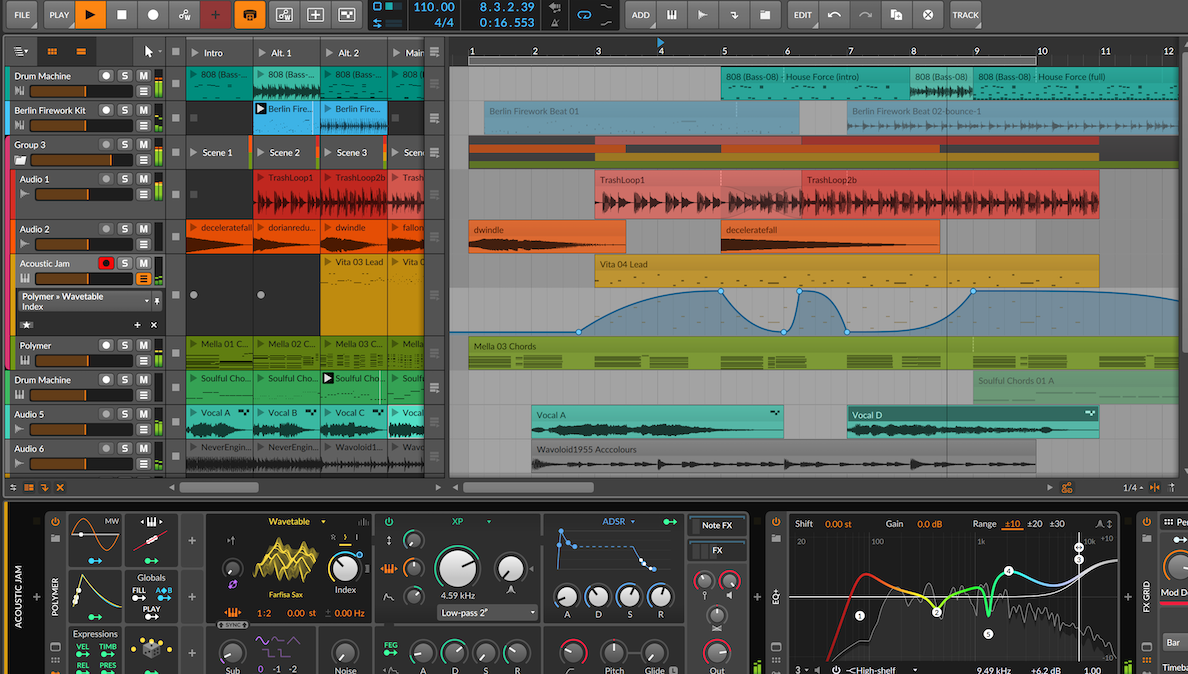
Korg Gadget
If you want something a little different – and probably the best 'second DAW' you can buy – then Korg Gadget (Mac, iOS or run is as a Mac/PC plugin), is one of the most user-friendly and inspirational tools out there.
It's been around for a while and first made its mark as one of the earlier, fully-featured iOS DAWs but has since transferred its exceptional workflow to the Mac platform, and is now also available as a Mac and PC plugin.
It is not about complex signal paths, meticulous audio effects and sound design, but straight up song creation
Gadget is not about complex signal paths, meticulous audio effects and sound design, but straight up song creation, idea generation and realisation.
You get gadgets a plenty – some 40 synthesisers, keyboards, drum machines, and samplers, with more optional ones available to buy – and you simply create tracks, mix them together, and then produce patterns and complete songs.
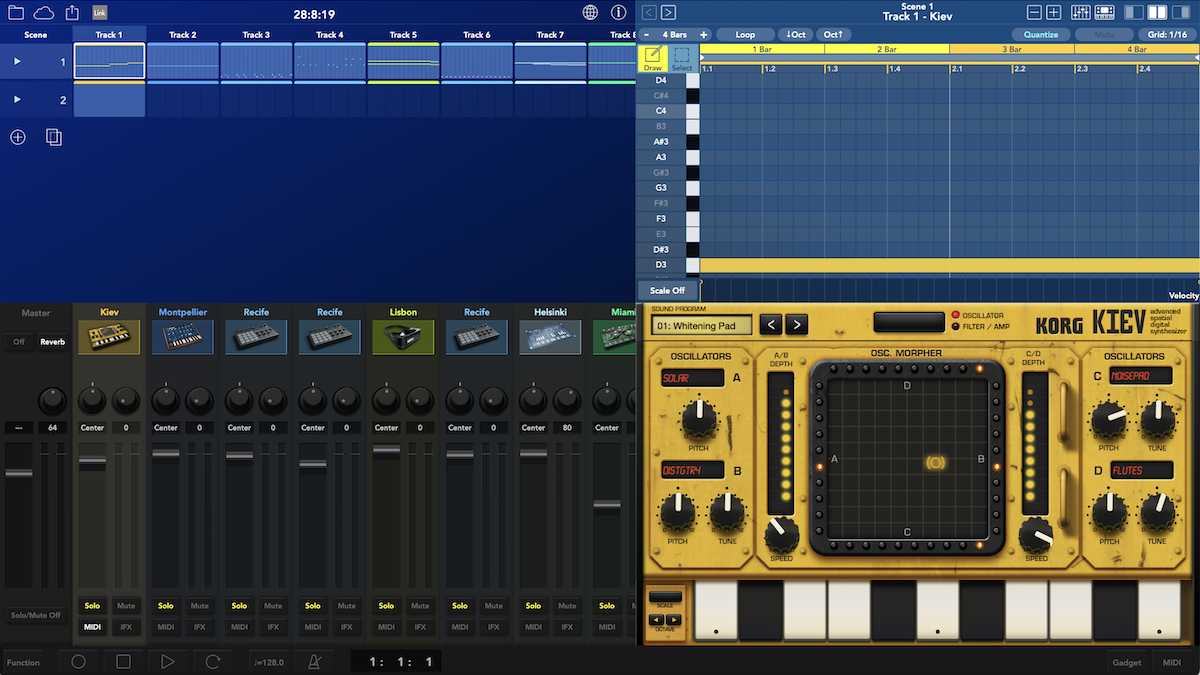
There's no messing about with much finery although you do get 14 insert effects and two master effects for some extra sheen. Export your efforts to audio or as Ableton parts for extra tweaking and you realise that this is the first DAW you open, the one you use best on an iPad (its touch experience is still brilliant) and as an ideas generator.
Get idea, make track, move on.
Gadget is free for the Mac LE version, $199 as the Mac/PC plugin, $299 for the Mac DAW and $40 for the iOS app.
PROS
Some fantastic instruments
So easy to use
Great touch operation on iPad
Fast results
CONS
Not so many features
More from Korg.
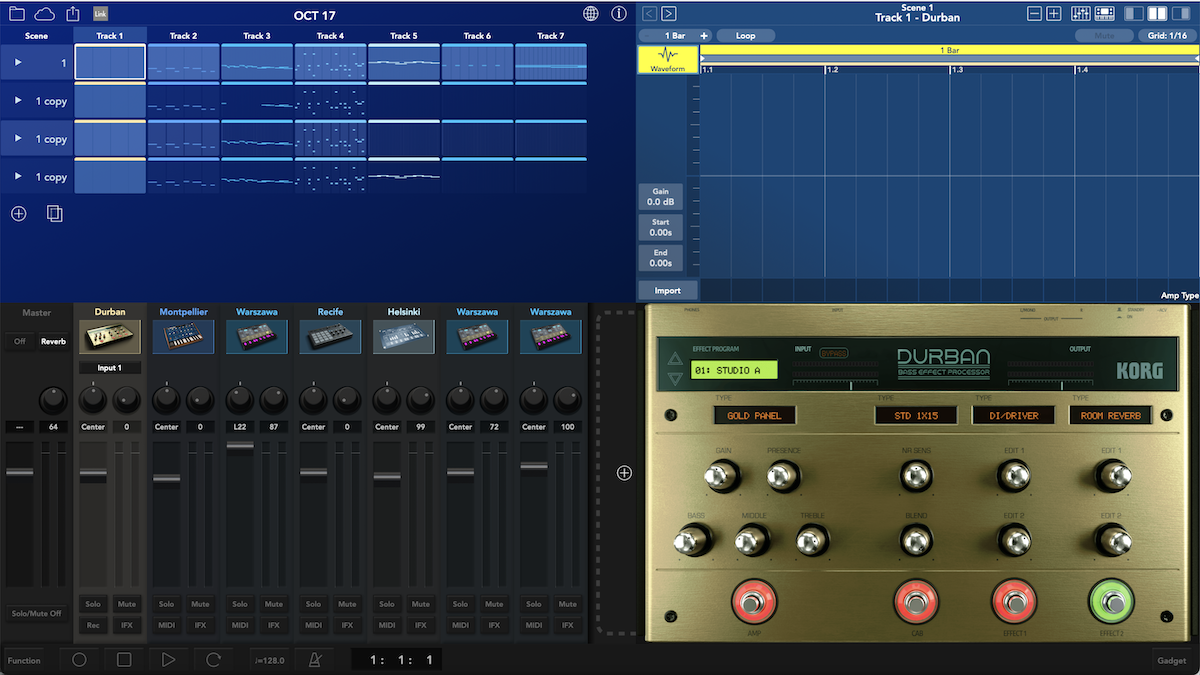
Acoustica Mixcraft
Finally, Acoustica Mixcraft 10 is a Windows-only DAW which has been also been doing the rounds for a while, but has developed into a one of the best music apps out there in terms of features v price.
Mixcraft has always offered a welcoming music production environment with a claimed ‘great ease of use combined with raw power’, and it’s hard to argue with this. It’s a traditional DAW in the sense that tracks go top to bottom and arrangement flows left to right, but the slickness level here is better than that on most others.
It’s a traditional DAW but the slickness level here is better than that on most others
You also get great third party plugins included, like versions of Cherry Audio’s Voltage Modular and Celemony Melodyne.
There’s a well featured mixer where you expect it to be and the UI is very welcoming indeed and easy to interact with, so the workflow is almost second to none on this platform.
Mixcraft runs slickly on a PC, and offers this smooth music-making experience with enough extras – including a large and well-implemented sound library – to help you make pretty much any genre of music you could wish for.
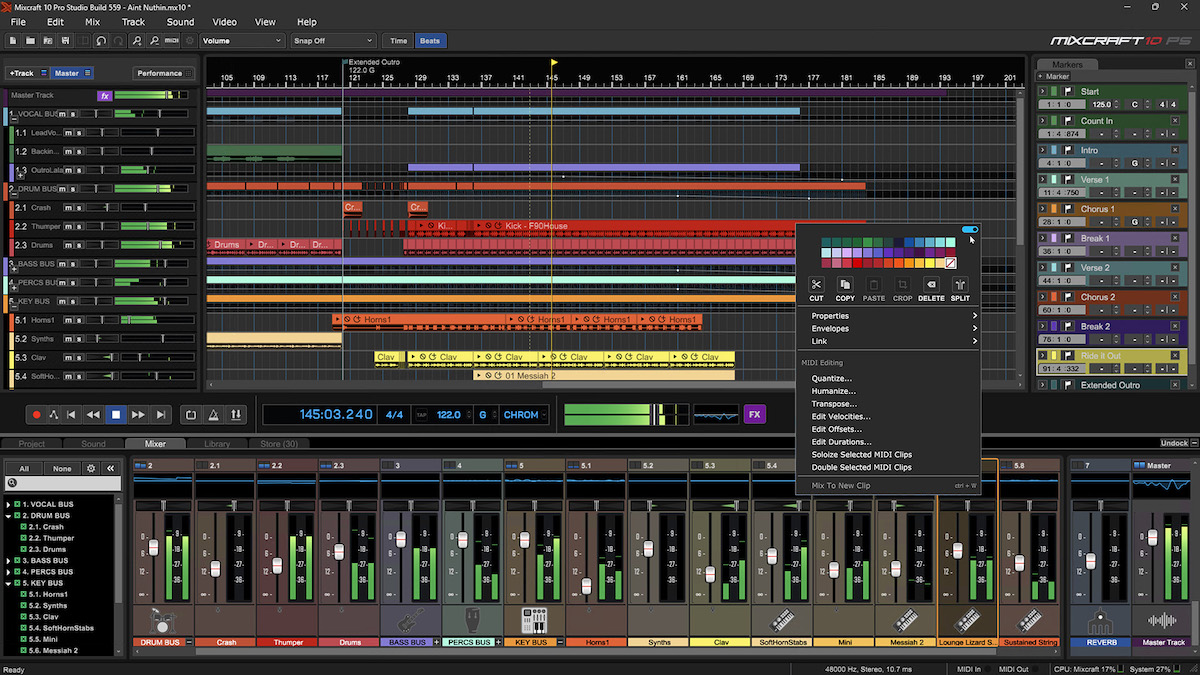
Best of all it costs just $79 for the entry-level Mixcraft 10 Recording Studio and just $149 for the full-fat Mixcraft 10 Pro Studio. Best bargain DAW?
PROS
Loads of features
Impressive plugin effects library
Loads of instruments
Slick interface
CONS
Some instruments look quite old
More information from Acoustica.
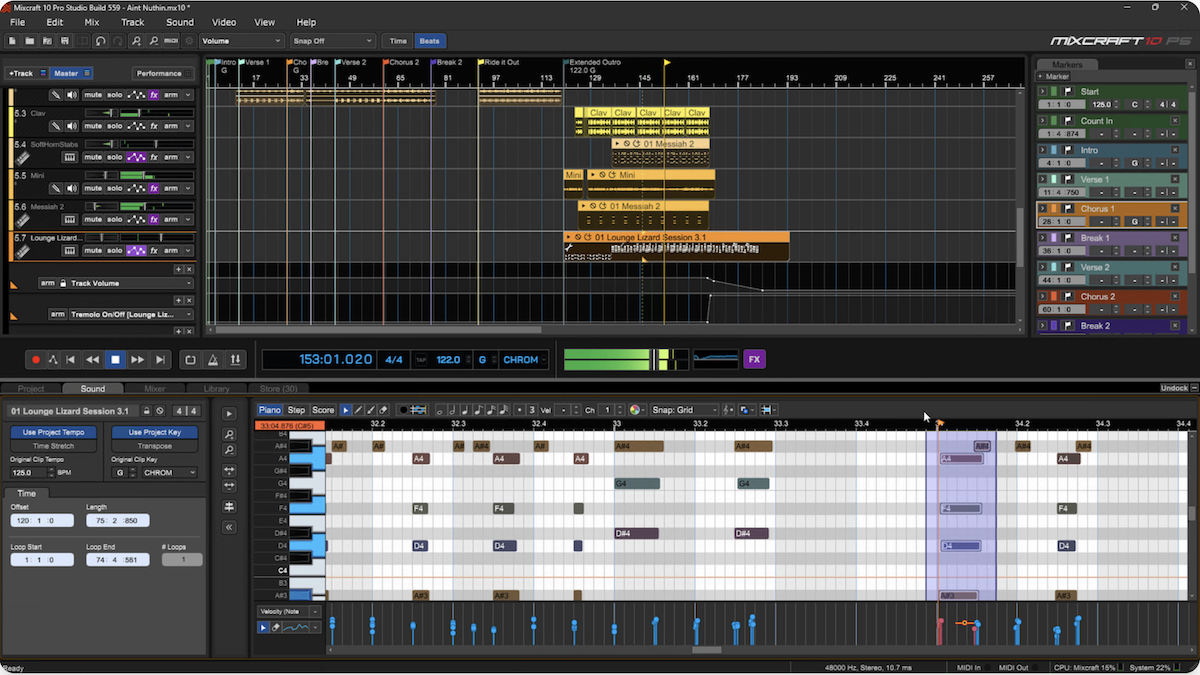


Andy has been writing about music production and technology for 30 years having started out on Music Technology magazine back in 1992. He has edited the magazines Future Music, Keyboard Review, MusicTech and Computer Music, which he helped launch back in 1998. He owns way too many synthesizers.


